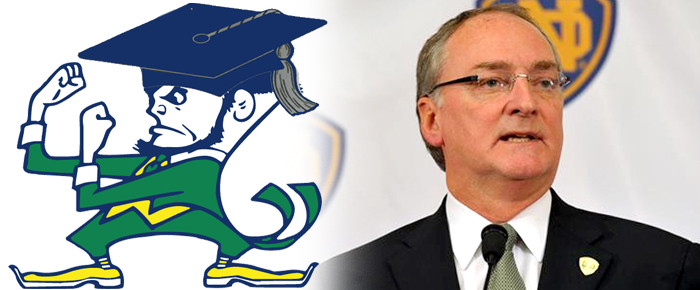
By Flint Wheeler
Here’s the deal. As the newly devised playoff picture becomes apparently destined to change, NCAA football schools across the nation have to now gear up to be, uhhh, well at least not worse than 4th place at the end of the season.
Last year, all but one school was going to finish not at the top. It was easy to predict that the have-nots (you know, everyone other than Alabama) would most likely finish outside of the title game. This gave most top tier schools the opportunity to progress their advertising campaign that they were an “Academic Institution” or they may boast, “We graduate 80% of our student athletes.” They could promote their “Programs” knowing that winning the national championships was not realistic. Their advertising dollars could be spent on selling not only the pride of their respective institutions but that of their coveted divisions. The system was that if the Pac-12, for example, sent U.C.L.A. to a major bowl that the revenue would spread through their division. It was sort of a team environment if you will. Each school hoping that the other does well so that they could get a share of the pot.
However now with the new playoff system teams are vying for no worse than fourth and a bid into the no doubt financial juggernaut that will be the NCAA Football final four coverage. It’s forcing teams to skirt once hard lines on academic integrity. After all, top four is WAY easier to achieve then being number one at the end of the season. Take for instance Notre Dames recent academic allegations of (Allegedly) cheating to gain highly acclaimed recruits admittance into the college which normally would pride itself of recruiting the elite academic athlete. I predict what’s happening at Notre Dame to be the tip of the iceberg as some of these institutions find the money to be made in the new playoff system too tempting to continue with a business as usual approach.
Notre Dame’s academic investigation likely will drag on at least through next week, when students return to campus for the fall semester. So for the next few days, no news may be good news for Notre Dame football.
On Monday, though, athletic director Jack Swarbrick said on ESPN’s “Mike and Mike” that “no evidence” has been uncovered in the investigation that shows the possible academic misconduct is a deep-seeded problem with the university.
“My confidence is very high that there isn’t some sort of institutional issue here like a ghost class or a transcript problem or a member of the faculty doing something or an academic adviser,” Swarbrick said. “That I’m very, very confident in.”
Those comments echo what Swarbrick said at Friday’s press conference — that if there was an institutional problem, the NCAA may come down harder with sanctions beyond Notre Dame possibly vacating wins from past seasons.
With less than two weeks remaining until Notre Dame’s season opener against Rice, there isn’t a clear timetable as to when the investigation will conclude and/or make a determination about the status of the four players currently suspended from team activities. Swarbrick said the investigation has poured over thousands of emails — which apparently is a point of contention with Phillip Daniels, the former Bears defensive end and father of wide receiver DaVaris Daniels.
On Saturday, Phillip Daniels wrote in a since-deleted tweet: “Message to athletes: Never use the university email system even if you are doing things the right way!”
For now, Daniels, cornerback KeiVarae Russell, linebacker Kendall Moore and defensive end Ishaq Williams will remain suspended from team activities so long as the investigation is ongoing.
“There’s evidence that they may have worked together in a way that just isn’t okay with Notre Dame,” Swarbrick said.
From a football and public relations standpoint, the potential losses of the four key players and the ignominy of an academic investigation have hurt the school over the last 72 hours. But Swarbrick said he’s “especially proud” of the process at Notre Dame — which does not involve athletics — to get to the bottom of the possible academic improprieties.
“We had somebody detect a potential anomaly in a paper. It would’ve been easy to look at the paper, make a determination about that student-athlete and move on,” Swarbrick said. “That’s now how Notre Dame works. We want to make sure — we want to protect the academic integrity and the values of the university.”








































